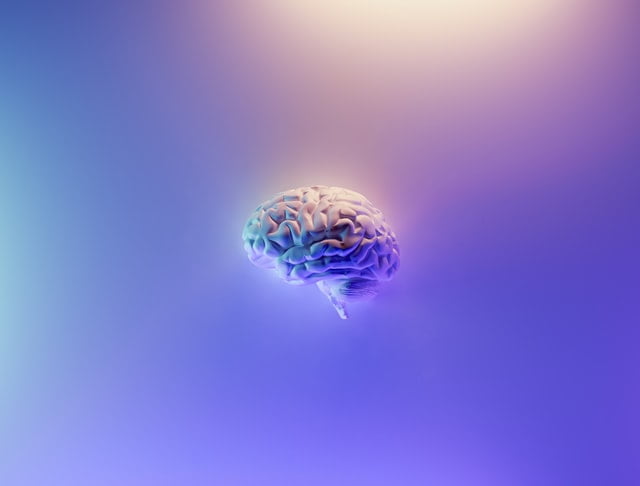
Do you suffer from brain fog? Is it impacting your daily life?
We are all experiencing it: we go shopping, park our car but then when we return, we need a little while to remember where we did park it… Or we want to say something to our partner but when we are free to speak, it is a complete blank: what is it we wanted to say?? I recently was in the middle of cooking a meal, went to the fridge to pick up a missing ingredient and froze: what was it that I needed already?
These momentary lapses in memory or concentration can be very frustrating and sometimes embarrassing but they are normal for most of us and should not cause us too much concern. The problem is when they start happening frequently and affect our daily life.
Brain fog is not considered a medical condition but often occurs as a symptom in a number of health conditions. It consists of a dysfunction in the brain leading to poor focus, inability to concentrate, memory issues and lack of mental clarity. It is usually associated with fatigue as well and if severe, can compromise our quality of life.
People suffering from brain fog often report being unable to work, struggling to do things in their daily lives, forgetting things, feeling distracted or confused, taking a long time to finish a task, or not managing to take even simple decisions.
Possible causes of brain fog
- Medical issues
As brain fog is associated with inflammation and fatigue, it is found in many health conditions such as depression, migraines, anaemia, anxiety, diabetes, hypothyroidism, chronic pain conditions such as fibromyalgia, chronic fatigue syndrome or dehydration. Recent research found that people who had Covid-19 or those suffering from long Covid may experience brain fog.
- Hormonal disruptions
Hormonal changes have a significant impact on our brain function which can lead to memory issues and/or poor cognitive response. One of the most significant change occurs during menopause when a drop in oestrogen levels cause many women to suffer from poor concentration, fuzzy thinking, fatigue and memory problems.
- Poor sleep
This is an obvious one. We all know how we feel when we do not get enough sleep! Sleep quantity and quality has a very significant impact on the way our brain works. If inadequate, it can lead to a plethora of issues and brain fog is one of them.
- Stress
Similarly, stress impacts all our bodily functions and, through its ability to drain us, it causes fatigue. When we are exhausted, we struggle to think, take decisions, focus and do things in general.
- Diet
There are foods that affect our cognitive functions (see further down). Some people also suffer from specific food allergies or intolerances which can trigger brain fog if they are exposed to these foods (dairy, peanuts, MSG, gluten…). A deficiency in vitamin B12, which is essential for brain function, can also lead to brain fog. Therefore, particular attention must be taken with people on a vegan diet as B12 can only be obtained from animal products.
- Medications
Some drugs can cause brain fog as a side effect. If this symptom occurs whilst you are taking a drug, please consult your doctor for advice. You may have to change medication or modify the dosage.
How to lift brain fog
Medically, brain fog will be dealt with according to the condition you are suffering from, so treatments will vary. Often, relieving brain fog can be a simple matter of changing the dosage of your medication, checking if you have a food allergy or intolerance, or supplementing vitamin B12 if you find you are deficient.
However, addressing the causes of your brain fog is essential.
- Manage your stress and ensure cortisol levels are kept in balance. Think exercise, yoga, meditation, mindfulness, walking, breathing, tai chi…
- Follow a mostly plant-based diet, full of antioxidant foods such as blueberries, spinach, dark chocolate (at least 70%), broccoli, dark skin fruits, green tea, turmeric, mushrooms…
- Have 3 servings of healthy omega-3 fats per week. Look out for oily fish such as mackerel, salmon, sardines, anchovies or herring, or plant sources such as avocado, nuts and seeds
- Support brain function with a good quality B-vitamin complex (seek advice from a Nutritional Therapist)
- Avoid all inflammatory foods such as sugar, processed foods, alcohol, caffeine, heavily salted foods…
All these steps will also support a good sleep, which is an important cause of brain fog. And, as always, make sure you drink at least 2 litres of water per day as dehydration is a main component in brain dysfunction.
If you are suffering from brain fog, please reach out: I would love to hear how you are managing. What have you done? What has worked? The suggestions in this blog are just a few and I am sure you have others, so please share! And if you would like to explore my services as a Nutritional Therapist to dig deeper or to support you with other health concerns, you can get in touch with me here or call me on 07788 444 199.